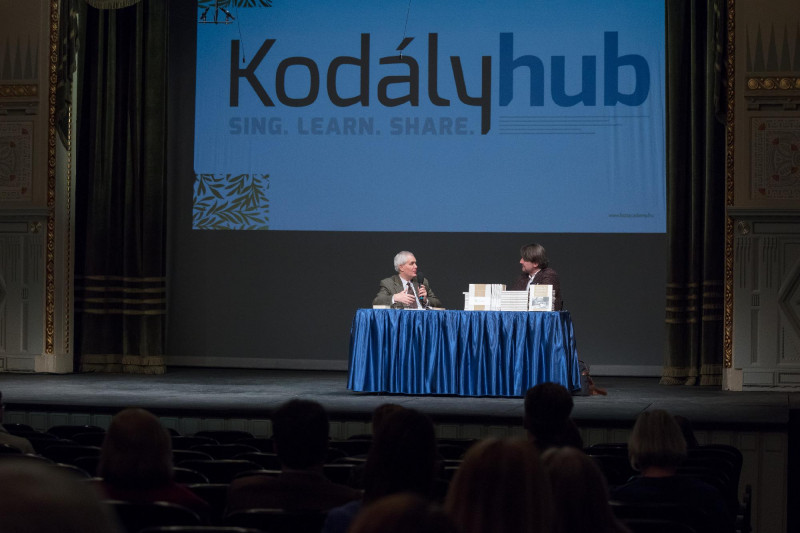Kodály belongs to all of us!
“To meet Zoltán Kodály and his life work is to be able to admire one of the most accomplished musicians of our time. He left three living »monuments« to his home country and humanity: his musical compositions, his research with Bartók, and a new concept of children’s music education”, said Yehudi Menuhin, as quoted by Professor Andrea Vigh in her celebratory speech at the conference held as the closing event of the Kodály Memorial Year. “Today, when being swift and able to multitask are virtues, when superficiality is becoming dominant in various fields, and as we increasingly encounter cheap solutions in high culture, there is a great need for Kodály as an role model: his intensity, his striving for perfection, and his seriousness (which does not necessarily mean lack of joy). Kodály and his colleagues recognised the »character building power« of music, proved its effects on the development of personality and cognitive skills, and created a music education system that is still looked up to around the world” – added Dr. Vigh at the symposium.
The Liszt Academy and its Kodály Institute organized a two-day symposium, titled 21st Century Music Pedagogy in the Footsteps of Kodály. The central topics of the symposium were schools of thought that are regarded and used by the finest Hungarian and international educators who follow the Kodály concept as the basis for improving music pedagogical practice, taking into consideration the possibilities and challenges of our era, the postmodern cultural environment and the mindset of 21st century children. Besides the new possibilities of teacher training and the significance of arts education, peripheral fields were also mentioned: music education of secondary school students, the socially vulnerable, and the disabled. László Norbert Nemes, Director of the Kodály Institute, stressed that in the Kodály Memorial Year the institution was able to achieve significant results with the support of the Hungarian Ministry of Human Capacities, which is a great step forward for music teacher training, and the preservation and improvement of Kodály-esque traditions.
The Kodály Institute created an innovative platform, the Kodály HUB, which was announced at the conference. It makes professional learning and teaching materials, and a digital lesson planner tool for teachers called Move mi Music available online. A 86-minute documentary, titled Kodály Belongs to All of Us, on the worldwide adaptation of the Kodály-concept by Balázs Béla Award winning directors Attila Kékesi and Gábor Zsigmond Papp was screened and well received.

Musicologist and editor Kristóf Csengery introduced a representative volume of essays compiled for the Kodály Memorial Year. The publication, titled Ötven év üzenete – Kodály Zoltán zenepedagógiai öröksége Magyarországon és a nagyvilágban (“Kodály, the Music Educator: his Fifty-year Legacy in Hungary and Around the World”), provides a glimpse into Kodály’s activities in the field of music pedagogy, providing an overall picture of keeping his spiritual legacy alive in Hungary, the Kodály Institute, the Kodály Museum and Archive, as well as the model schools, and the realm of choir culture, through the work of new generations of music pedagogists.

“We often use the expression »Kodály’s country«, referring to Hungary of course, and many might wonder if there is a threat that this expression will become an empty phrase. I believe, and the events of the past two days have also shown, that the often mentioned »Kodály-esque tradition« is being kept alive indeed, and it will find its place in the ever changing music scene of the 21st century.” These were the opening thoughts by the rector of the Liszt Academy preceding the closing concert of the symposium, which consisted of only choral works, demonstrating with the help of music the ideal that Kodály’s fundamental ideas regarding musical culture and music education are immutable. Dr. Andrea Vigh voiced her belief that Kodály’s way of thinking can be employed in the present cultural climate. “Music has a magical power that can make the world a better place”, expressed Dr. Vigh the stance of the Liszt Academy and that of her own.


